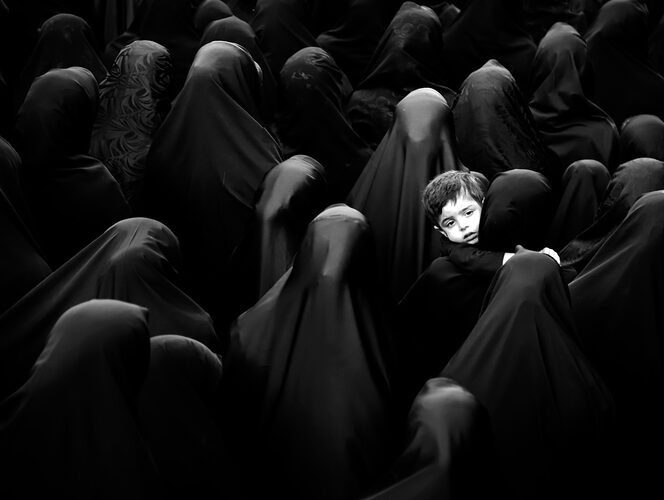Groundbreaking Ruling: Islamic Law vs. Live-In Relationships
In a groundbreaking ruling that delves into the intersection of Islamic law and contemporary social practices, the Lucknow bench of the Allahabad High Court has laid down a significant precedent: Muslims cannot partake in live-in relationships, particularly when already married.
Read More: The Key to Lasting Love: 15 Secrets to a Happy Relationship
Islamic Principles: A Barrier to Live-In Arrangements
Citing Islamic principles as the bedrock of their decision, Justices AR Masoodi and AK Srivastava elucidated that Islamic law unequivocally forbids individuals from engaging in live-in relationships while their marriage is legally valid. However, the bench clarified that exceptions may exist for unmarried adults who voluntarily opt for cohabitation.
Case in Point: Denial of Police Protection
The ruling stemmed from a case involving petitioners Sneha Devi and Mohd Shadab Khan from Bahraich district, Uttar Pradesh. Seeking police protection, the petitioners found themselves embroiled in a legal battle after Sneha’s parents filed an FIR against Khan, alleging abduction and coercion into marriage.
Marital Status Matters: Khan’s Predicament
Upon scrutiny, the court unearthed Khan’s marital status, revealing that he was already wedded to Farida Khatoon since 2020, with whom he shared a daughter. Armed with this revelation, the bench deemed it fit to deny police protection, citing Islamic tenets that frown upon such relationships, particularly within the context of this case.
Balancing Act: Constitutional Morality vs. Social Customs
In navigating the delicate balance between constitutional imperatives and societal norms, the bench emphasized the paramountcy of upholding social harmony and tranquility. While constitutional morality may occasionally override customary practices, the bench opined that the circumstances of this case did not warrant such intervention.
Constitutional Protections: Conditional Parameters
Underlining the conditional nature of constitutional safeguards, particularly enshrined in Article 21 of the Indian Constitution, the bench emphasized that such rights cannot unconditionally endorse relationships that contravene established customs and traditions, especially between individuals professing different faiths.
Judicial Directive: Ensuring Safe Custody
In its final directive, the court instructed the police to facilitate Sneha Devi’s safe repatriation to her parental abode, underscoring the imperative of ensuring her security and well-being under stringent protective measures.
Read More: What is CAA in India? Understanding India’s Citizenship Amendment Act












I loved as much as you will receive carried out right here The sketch is attractive your authored material stylish nonetheless you command get got an impatience over that you wish be delivering the following unwell unquestionably come more formerly again since exactly the same nearly a lot often inside case you shield this hike
Dedicated to excellence, BWER offers Iraq’s industries durable, reliable weighbridge systems that streamline operations and ensure compliance with local and global standards.
Everything is very open and very clear explanation of issues. was truly information. Your website is very useful. Thanks for sharing.
In the awesome design of things you’ll get an A with regard to effort. Exactly where you misplaced us was in the specifics. You know, they say, details make or break the argument.. And it couldn’t be more correct right here. Having said that, permit me say to you what exactly did work. Your text is actually rather convincing which is most likely the reason why I am making the effort to comment. I do not make it a regular habit of doing that. Secondly, although I can see a leaps in logic you make, I am not really convinced of exactly how you appear to unite the details which inturn make the final result. For the moment I will, no doubt yield to your point however trust in the foreseeable future you actually link your dots better.
I am so happy to read this. This is the kind of manual that needs to be given and not the random misinformation that is at the other blogs. Appreciate your sharing this best doc.
Would you be involved in exchanging hyperlinks?
Hello, I want to subscribe for this website to get latest updates,
so where can i do it please help out.
Vulkan Platinum — это место, где азарт и удовольствие от игры сочетаются с высокими шансами на
выигрыш. Здесь можно наслаждаться не только популярными слотами, но и уникальными игровыми предложениями, которые могут
существенно увеличить
ваш доход. Игровой процесс в Vulkan Platinum всегда увлекательный и непредсказуемый.
Почему стоит выбрать игры для мобильных устройств?
Vulkan Platinum предоставляет игрокам гарантии безопасности и комфорта, а также быстрые выплаты
и честную игру. С нами выигрывать не только приятно, но и выгодно, благодаря нашим бонусам и акциям.
Когда самое время начать игру в Vulkan Platinum?
Чем раньше, тем лучше! Процесс регистрации
занимает всего несколько минут, и
вы сразу сможете наслаждаться
всеми преимуществами казино. Вот что
вас ждет в Vulkan Platinum:
Мгновенные выплаты с полной защитой данных.
Множество популярных игр для любых
предпочтений.
Эксклюзивные бонусы и акции для постоянных
игроков.
Vulkan Platinum — это шанс для каждого стать победителем и
испытать удачу. https://vulkan-rush.top/
I love studying and I think this website got some really utilitarian stuff on it! .
What i do not realize is in truth how you’re now not really a lot more neatly-preferred than you may be now. You’re so intelligent. You realize thus considerably on the subject of this topic, made me in my opinion consider it from so many numerous angles. Its like men and women aren’t involved until it’s one thing to accomplish with Woman gaga! Your individual stuffs great. Always care for it up!